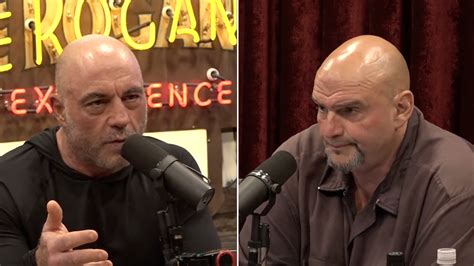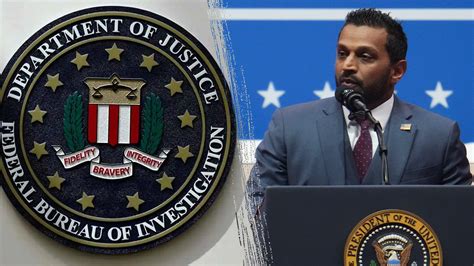
Democrats need a prominent, liberal voice in the podcasting sphere to counter the influence of figures like Joe Rogan, argues a recent opinion piece, suggesting the party is missing an opportunity to reach a wider audience and shape the narrative on key issues. The lack of a comparable platform leaves a significant portion of the population, particularly younger and more independent voters, largely unengaged by the Democratic message.
The op-ed, highlighting the need for a left-leaning counterpart to Rogan, points to the success of “The Joe Rogan Experience” in attracting a large and diverse listenership. Rogan’s podcast often features discussions that lean conservative or challenge mainstream narratives, giving a platform to viewpoints that may not be widely represented in traditional media. The absence of a similar liberal voice, the article contends, creates an echo chamber where conservative viewpoints dominate the audio landscape, potentially influencing public opinion and electoral outcomes.
The core argument is that Democrats need to actively cultivate and support voices that can articulate progressive values and policy positions in an engaging and accessible manner. This isn’t simply about finding a clone of Rogan, but rather identifying individuals with the charisma, communication skills, and intellectual depth to connect with audiences who may be skeptical of traditional political messaging. The goal is to create a space where complex issues can be debated openly and honestly, from a progressive perspective, fostering a more informed and nuanced understanding of Democratic ideals.
According to the Yahoo News article, “Liberals need a Rogan, someone who can reach audiences that are not already in the left’s silo, and who can talk about issues in a way that is not preachy or partisan.” This underscores the importance of authenticity and relatability in reaching a broader audience. The article suggests that the Democratic party often struggles to connect with voters outside of its core base, in part because its messaging can be perceived as overly academic or out of touch with the concerns of everyday Americans.
Finding a suitable liberal Rogan, however, presents several challenges. It requires identifying individuals who possess not only the necessary communication skills but also the intellectual breadth and political savvy to engage in complex debates on a wide range of topics. Moreover, it requires a willingness to embrace a more open and less controlled form of communication, something that may be at odds with the Democratic party’s tendency towards centralized messaging and risk aversion.
The piece also raises the question of whether the Democratic party is willing to invest the resources necessary to support the development of a prominent liberal podcast. Building a successful podcast requires significant financial investment in production, marketing, and talent development. It also requires a commitment to allowing the host to operate with a degree of independence, even if that means occasionally challenging the party line.
Furthermore, the article acknowledges the inherent risks associated with promoting any single individual as the voice of the Democratic party. It is important to avoid creating a situation where the party’s message becomes too closely tied to the opinions or actions of one person. A more sustainable approach may involve supporting a network of diverse voices, each with their own unique perspectives and areas of expertise.
Ultimately, the argument for a liberal Rogan is about recognizing the changing media landscape and adapting to the ways in which people are consuming information. Podcasting has emerged as a powerful platform for shaping public opinion, and the Democratic party needs to be actively engaged in this space if it wants to remain relevant in the 21st century. The article suggests that the current approach, which relies heavily on traditional media outlets and partisan cable news, is no longer sufficient to reach a broad and diverse audience.
The Yahoo News article references several potential candidates who could fill the role of a liberal Rogan. These include academics, journalists, and political commentators who have demonstrated the ability to communicate effectively and engage in thoughtful discussions on complex issues. However, the article also emphasizes that the most important quality is authenticity. The ideal candidate would be someone who is genuinely passionate about progressive values and able to articulate those values in a way that is relatable and persuasive.
The need for a liberal counterweight to figures like Joe Rogan reflects a broader concern about the polarization of American society and the fragmentation of the media landscape. As people increasingly turn to niche media outlets and social media platforms for their news and information, it becomes more difficult to reach a shared understanding of the challenges facing the country. The creation of a prominent liberal podcast could help to bridge some of these divides by providing a platform for thoughtful discussions on important issues from a progressive perspective.
The challenge for Democrats is to find a way to engage in the podcasting space without compromising their values or resorting to the same kind of divisive rhetoric that has become so prevalent in contemporary politics. The goal should be to create a space for respectful dialogue and open debate, where people can come together to discuss the issues facing the country and work towards common solutions. This requires a willingness to listen to opposing viewpoints and to engage in constructive criticism, even when it is uncomfortable.
The article concludes by emphasizing the urgency of the situation. The Democratic party cannot afford to ignore the rise of podcasting as a powerful platform for shaping public opinion. If they want to remain competitive in the long term, they need to invest in the development of a prominent liberal voice that can reach a wider audience and articulate progressive values in a way that is engaging, accessible, and authentic. The potential rewards are significant: a more informed electorate, a more nuanced public discourse, and a stronger, more unified Democratic party. The risks of inaction are equally significant: continued polarization, a further erosion of trust in traditional media, and a growing disconnect between the Democratic party and the concerns of everyday Americans.
The success of Joe Rogan’s podcast lies in its ability to foster open dialogue, even on controversial topics. A liberal counterpart wouldn’t necessarily need to mimic Rogan’s style exactly, but it would need to embrace a similar commitment to intellectual honesty and a willingness to engage with a wide range of perspectives. This could involve inviting guests with diverse viewpoints, even those who disagree with the host’s own political beliefs.
Furthermore, a successful liberal podcast would need to be more than just a platform for promoting Democratic talking points. It would need to address the underlying concerns and anxieties that drive support for conservative viewpoints. This requires a deep understanding of the social and economic forces that are shaping American society, as well as a willingness to engage in constructive criticism of the Democratic party’s own policies and strategies.
The article also hints at the challenges of finding someone who can appeal to a broad audience without alienating the Democratic party’s core base. The Democratic party is a diverse coalition, encompassing a wide range of ideological perspectives and demographic groups. Finding a single individual who can represent all of these interests is a difficult task.
One possible solution is to create a network of liberal podcasts, each with its own unique focus and target audience. This would allow the Democratic party to reach a wider range of voters without relying on a single individual to represent the entire party. It would also allow for a greater diversity of perspectives and voices within the liberal movement.
The potential for collaboration between established media organizations and independent podcasters is another area worth exploring. Many established media outlets already have a significant online presence and a large audience. By partnering with independent podcasters, they could expand their reach and tap into new audiences.
The article suggests that the Democratic party should also consider investing in training programs to help aspiring podcasters develop the skills they need to succeed. This could involve providing training in areas such as audio production, marketing, and audience engagement. It could also involve providing mentorship opportunities with established podcasters.
Ultimately, the success of any effort to create a liberal counterpart to Joe Rogan will depend on the willingness of the Democratic party to embrace a more open and decentralized approach to communication. The party needs to be willing to relinquish some control over its message and to allow for a greater diversity of voices and perspectives within the liberal movement. It also needs to be willing to invest the resources necessary to support the development of a vibrant and sustainable podcasting ecosystem.
The conversation around the need for a “liberal Rogan” has sparked debate among political analysts and commentators. Some argue that the focus on finding a single individual to counter Rogan’s influence is misguided, and that the Democratic party should instead focus on building a broader network of progressive voices across different platforms. Others argue that a high-profile liberal podcaster could play a valuable role in shaping public discourse and reaching voters who are not already engaged with traditional Democratic messaging.
The debate also highlights the challenges of replicating Rogan’s success. Rogan’s podcast has become popular due to his willingness to engage in controversial conversations and to challenge conventional wisdom. A liberal counterpart would need to be equally willing to challenge the status quo, even if it means criticizing the Democratic party or its leaders.
The article’s argument hinges on the assumption that Rogan’s audience is receptive to liberal ideas, provided they are presented in a non-preachy and accessible way. This is a debatable point, as many of Rogan’s listeners are likely to be politically conservative. However, even if only a small percentage of Rogan’s audience is open to hearing liberal perspectives, it could still have a significant impact on public discourse.
The idea of a “liberal Rogan” also raises questions about the role of political parties in shaping media content. Should political parties be actively involved in promoting specific media personalities or platforms? Or should they focus on creating a more level playing field for all voices, regardless of their political affiliation? These are complex questions with no easy answers.
The debate over the need for a “liberal Rogan” is likely to continue for some time. As podcasting continues to grow in popularity, it is likely that political parties and organizations will increasingly look to this medium as a way to reach voters and shape public opinion. The challenge will be to do so in a way that promotes healthy democratic discourse and avoids the pitfalls of polarization and misinformation. The Democratic Party faces a strategic imperative to adapt to the evolving media landscape and cultivate voices that resonate with a broader spectrum of the population. This necessitates a departure from traditional communication strategies and an embrace of new platforms, like podcasting, where independent and authentic voices can flourish. The pursuit of a “liberal Rogan,” therefore, is not merely about finding a left-leaning counterpart, but about recognizing and leveraging the power of alternative media to engage with voters who are increasingly disillusioned with mainstream sources. The goal is to create a space where complex issues can be explored from a progressive perspective, fostering a more informed and nuanced understanding of Democratic ideals and policies.
The effectiveness of any potential “liberal Rogan” will heavily rely on their ability to connect with audiences on a personal level, mirroring Rogan’s success in building a loyal following through candid conversations and relatable perspectives. This requires more than just policy expertise; it demands a genuine understanding of the concerns and aspirations of everyday Americans, as well as a willingness to engage in respectful dialogue with those who hold different viewpoints. It’s about fostering a sense of community and trust, creating a platform where listeners feel heard and understood, regardless of their political affiliations.
The Democratic Party must also consider the long-term implications of investing in a single figurehead. While a prominent liberal podcaster could provide a valuable platform for promoting progressive ideas, it’s crucial to avoid creating a situation where the party’s message becomes overly dependent on one individual. A more sustainable approach would involve cultivating a diverse network of voices, each with their own unique perspectives and areas of expertise. This would not only broaden the party’s reach but also safeguard against the risks associated with relying too heavily on a single personality.
The challenge is to find individuals who possess the charisma, communication skills, and intellectual depth to engage with a wide range of topics while remaining authentic and relatable. This may involve identifying talent from outside the traditional political sphere, such as academics, journalists, artists, or community leaders who have a proven track record of engaging with diverse audiences. The key is to find individuals who are genuinely passionate about progressive values and able to articulate those values in a way that resonates with everyday Americans.
The emphasis should be on creating a platform for dialogue and debate, where diverse perspectives are welcomed and respected. This would involve inviting guests with different viewpoints, even those who disagree with the host’s own political beliefs. The goal is not to create an echo chamber, but rather to foster a more informed and nuanced understanding of the issues facing the country.
The Democratic Party needs to be prepared to relinquish some control over its message and allow for a greater degree of independence among its media representatives. This may require a shift in mindset, as political parties often prefer to maintain tight control over their messaging. However, in the age of social media and independent podcasting, authenticity and transparency are more important than ever. Voters are increasingly skeptical of highly polished political messaging and are more likely to trust individuals who speak their minds freely and honestly.
The creation of a prominent liberal podcast could also help to counter the spread of misinformation and disinformation. By providing a platform for accurate and reliable information, it could help to educate voters and empower them to make informed decisions. This is particularly important in an era where social media algorithms often prioritize sensational and misleading content over factual reporting.
The success of any effort to create a “liberal Rogan” will ultimately depend on the willingness of the Democratic Party to embrace a more open, decentralized, and authentic approach to communication. It requires a commitment to investing in diverse voices, fostering respectful dialogue, and relinquishing control over the message. If the party can successfully navigate these challenges, it could unlock a powerful new tool for engaging with voters and shaping public opinion.
Frequently Asked Questions (FAQ):
1. Why do some people believe Democrats need a “liberal Rogan”?
The argument stems from the perceived success of figures like Joe Rogan in reaching a large and diverse audience, including those who may not be traditionally engaged with Democratic messaging. The absence of a prominent liberal voice in the podcasting sphere is seen as a missed opportunity to articulate progressive values and policy positions in an accessible and engaging way, potentially influencing public opinion and electoral outcomes. As stated in the article, “Liberals need a Rogan, someone who can reach audiences that are not already in the left’s silo, and who can talk about issues in a way that is not preachy or partisan.”
2. What are the key challenges in finding or creating a “liberal Rogan”?
Several challenges exist: identifying individuals with the necessary communication skills, intellectual breadth, and political savvy to engage in complex debates; a willingness to embrace a more open and less controlled form of communication, which may conflict with the Democratic party’s traditional messaging approach; and the financial investment required for production, marketing, and talent development. Authenticity and relatability are also crucial, as the ideal candidate would need to genuinely connect with audiences who may be skeptical of traditional political messaging.
3. Is the idea of a “liberal Rogan” simply about finding a left-leaning clone of Joe Rogan?
No. The article emphasizes that it’s not about finding a clone but rather identifying individuals with the charisma, communication skills, and intellectual depth to connect with audiences who may be skeptical of traditional political messaging. The goal is to create a space where complex issues can be debated openly and honestly, from a progressive perspective, fostering a more informed and nuanced understanding of Democratic ideals. The focus should be on authenticity and relatability rather than simply mimicking Rogan’s style.
4. What are some potential risks associated with promoting a single individual as the voice of the Democratic party?
The primary risk is creating a situation where the party’s message becomes too closely tied to the opinions or actions of one person. A more sustainable approach may involve supporting a network of diverse voices, each with their own unique perspectives and areas of expertise, to avoid over-reliance on a single individual. Diversifying the message across multiple platforms and personalities can mitigate the risks of misrepresentation or alienation of certain segments of the Democratic base.
5. How could a “liberal Rogan” or a network of progressive podcasters help address the polarization of American society?
By providing a platform for thoughtful discussions on important issues from a progressive perspective, a “liberal Rogan” or a network of podcasters could help bridge divides. The aim is to create a space for respectful dialogue and open debate, where people can come together to discuss the issues facing the country and work towards common solutions. This requires a willingness to listen to opposing viewpoints and to engage in constructive criticism, even when it is uncomfortable, fostering a more informed and nuanced public discourse.









